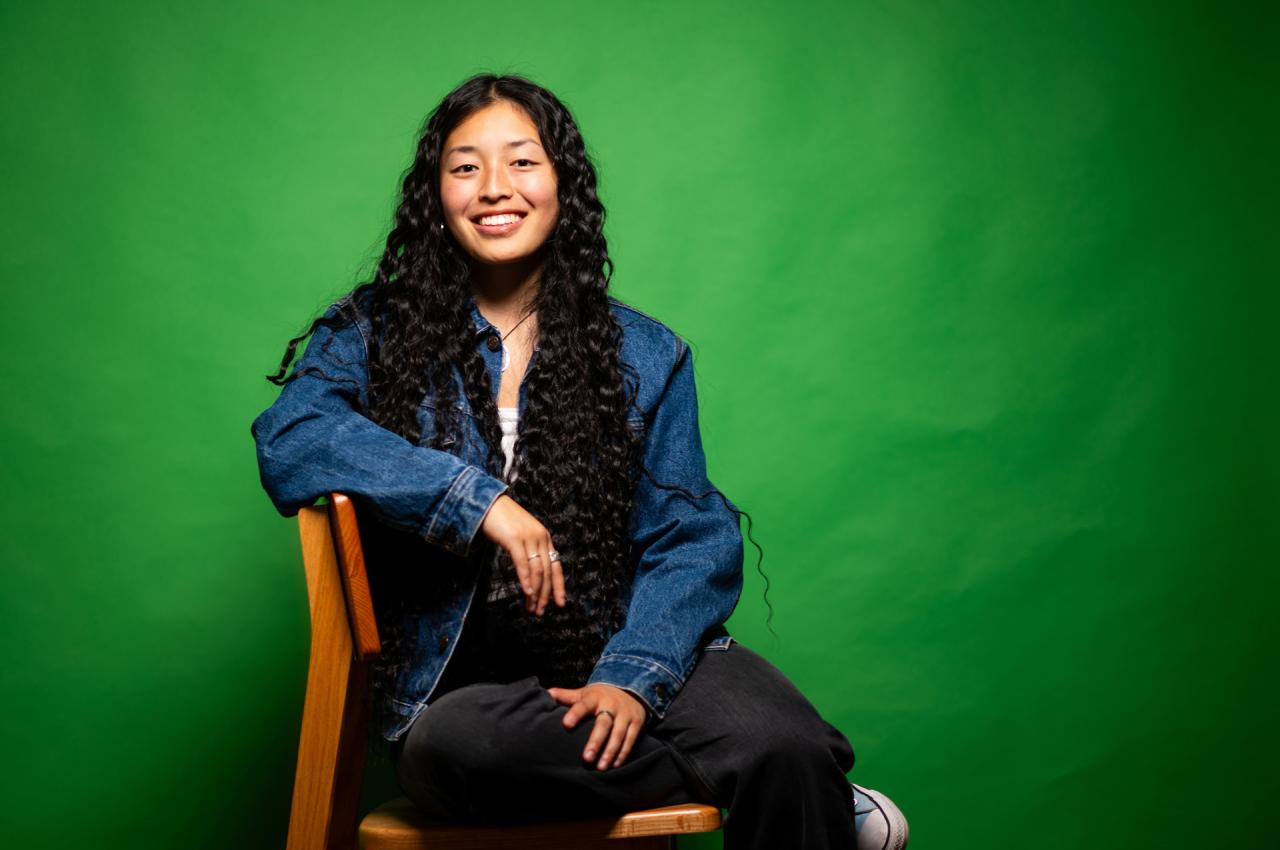ShaSha Kingston’s Environmental Justice
ShaSha Kingston, A24, helped the Office of Sustainability modernize its efforts on campus, supporting the creation of three new student-led programs. A biology, psychology, and environmental studies major, Kingston was recently honored with a Tufts 2024 Presidential Award for Civic Life.
Why does sustainability matter to you?
Through sustainability, I want to create a more just and equitable world, because marginalized groups are left out of environmental decision-making processes—and their communities are disproportionately impacted by pollution. Typically, marginalized communities are housed in proximity to waste facilities, which increases the health burden they face. They also have lower access to green spaces and fresh produce. It’s a very big social justice issue.
How did you become active in the Office of Sustainability?
I joined the office my first year as an Eco Rep and later became a coordinator of that program. But there was an internal push to see our programs grow and change in a way that met current needs. Our old programs were created in the early 2000s, mainly to talk about personal action, reducing waste, how to recycle, things like that. And that was fitting for the time; it was great. Now, there’s a movement in the environmental space to really merge sustainability work with social justice, equity, and inclusion.
What steps did you take?
I created an equity-justice working group to engage students to think about how the Office of Sustainability could better center these topics in student programming.
I brought the conclusions from that working group to Ann Ward, the Office of Sustainability’s education and outreach specialist. At the end of my junior year, I brainstormed how new sustainability programs could work to address large-scale institutional change, community-building, and equity-justice, and how programs could be more inclusive. We concluded that three new programs, each with a different mission, hit at this sentiment. They launched in fall 2023.
Sustainable Spring is for first-years or those new to sustainability. This is a class that provides a “taster” of the sustainability work happening on- and off-campus. Each week, students are introduced to a different campus sustainability club or program, research project, or off-campus partner, and they learn about the work they do.
Sustainable Solutions Fellows is a research-focused program working to solve institutional sustainability problems. Students are paired with a faculty member, staff member, or community partner and given a sustainability-related issue to research. The research will help inform sustainability efforts and actions at Tufts moving forward. Right now, there are 10 Solutions fellows.
Sustainable CORE (Cultivating Our Resilient Environment) Fellows are the community-building wing of the programs. CORE fellows have the mission of building an inclusive culture of sustainability on campus through sustainable action, equity, and celebration. They were formerly known as eco-reps. This program now centers equity-justice and collaborative partnerships with on-campus student groups and off-campus community organizations. They run events, lead sustainability projects, and provide educational materials. This year, we have 16 CORE fellows.
I’m the TA for Sustainable Spring, I’m a Solutions fellow, and I’m the coordinator of the CORE fellows program.
Why does this work matter so much now?
Climate resiliency is important to me. With the changing climate, you’re already seeing impacts, even just in the Boston area, such as heat or flooding. Creating natural solutions to combat these issues, to adapt and to be resilient, is going to be important for human survival.
How are you going to continue this work after graduation?
I just accepted a position at Mystic River Watershed Association, a local environmental nonprofit that works at the intersection of environmental science, climate, and community resiliency. People are finally realizing that there’s an inherent marriage between social justice and environmental justice. To create a sustainable world for all of us, we have to address that connection and work toward inclusion to make sure that all people feel like they’re part of this movement.
Latest Tufts Now
- 2024 Commencement Weekend in PicturesPhotos from the all-University Commencement Ceremony, Baccalaureate Service, and Illumination Ceremony
- Scenes from the 2024 School Commencement CeremoniesSchools across Tufts presented degrees to more than 3,600 graduates during individual ceremonies throughout the afternoon
- Education and Civic Engagement Are ‘Life Preservers’Foreign policy expert Fiona Hill emphasizes the value of being actively engaged in the world, regardless of the challenges
- Class of 2024: Relationship ReflectionsCongratulations to the Class of 2024 and thank you to everyone who gave them a hand along the way
- Indie Band Guster Celebrates Its Eras with a New Album and TourGroup that formed at Tufts more than 30 years ago says the best is yet to come
- Call for Nominations for New Dean of Arts and SciencesConsultation with faculty, students, and staff has been key to the search for the next leader of the university’s largest school













